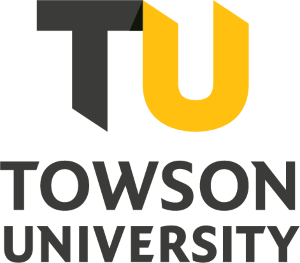Co-op Courses in Canada: Eligibility, Colleges Offering Them, and more.
6 mins read 5626 Views
By Prabhadri Suman|Updated On - 2023-05-17 07:00:03
Co-op courses in Canada: Check co-op program benefits, eligibility, admissions criteria, and how to apply to the top universities in Canada, etc.

Topics Covered:
- What are Co-op Courses in Canada?
- Understanding the Co-op in Canada
- Benefits of Co-op Education in Canada
- Difference Between Co-op Courses and Internships in Canada
- Eligibility Conditions for Co-op Courses in Canada
- Eligibility criteria for international students
- Eligibility Requirements for Co-op Work Permit Canada
- List of Top Universities with Co-op Programs/Courses in Canada
- Best Co-op Colleges in Canada
- Best co op Programs in Canada
- How to apply for Co-op Course in Canada
- Cost of Studying Co-op Courses in Canada
- How Can You Find Co-op Positions in Canada?
- Conclusion
A co-op course or cooperative education program refers to a system under which a student gains practical work experience simultaneously alongside classroom experience during the course of the program. Canada has been offering co-op programs to its students for the last several decades.
Some years ago, the government of Canada increased its support for co-op programs through the Student Work Placement Program. The Canadian government pledged to support and subsidize the salary for co-op students who meet the eligibility criteria in STEM and business programs for post-secondary education.
What are Co-op Courses in Canada?
A typical co-op course entails an alternating pattern where one semester of academic term is followed by one semester of work term. Since students in co-op programs have multiple work terms over the course of the degree, they tend to take an additional year to graduate compared to students in other programs.
A co-op program is a unique model that allows students to spend each work term with a different organization in their chosen field. It is like a paid internship where students earn between, with the help of which they can easily pay for their monthly housing and grocery bills.
Along with pursuing their studies, students get work experience. This gives them insight into different practical aspects of their subject of study. It also brings them more clarity on what area they would like to pursue in the long run in their career. The work term lasts for around four months, during which time the student gets placed in an organization relevant to their field of study, with a specific role, and reports to a manager.
The average salary for work under co-op courses varies according to the student's current education level, previous work experience, and the province in which they work. That said, it usually ranges between $12-$15 per hour. At the end of the work term, managers are required to send their feedback to the university and give a performance evaluation of the student.
Students who wanted to study in Canada can look for a wide variety of options. For instance, at the University of Waterloo, students can choose between 13 business co-op programs, including environment and business, arts and business, and information technology management, or enroll in the university's Computer Engineering co-op program. Almost all universities have dedicated staff or departments to assist students in finding program-specific employment.
Understanding the Co-op in Canada
Co-op students can work full-time for four months in an organization and then attend school. This provides an excellent opportunity to explore different career paths while earning an income. The co-op program alternates between academic and work terms throughout the degree. This may result in an additional year to graduate compared to other programs. However, students are provided with a co-op teacher who can assist in finding a suitable workplace. This is a benefit that sets the co-op program apart from others.
Study Co-op Sequence in Canada
| Year of Study | September to December | January to April | May to August |
| First-year | Study term | Study term | Holiday |
| Second year | Study term | Co-op Work term | Study term |
| Third year | Co-op Work term | Study term | Work term |
| Fourth-year | Study term | Co-op Work term | Study term |
| Fifth year | Co-op Work term | Study term | Graduation |
Co-op Work term
= Four-month co-op work term,
Study term
= Four-month school term,
Off
= work, travel, vacation, etc.)
Benefits of Co-op Education in Canada
Let us weigh up the benefits of opting for a co-op education in Canada:

- Earning while studying
- Industry insights
- Valuable work experience
- Networking and connections
- A lucrative break from the monotony of classroom lectures
-
Ability to make better decisions for future career
As far as jobs, careers, and employment are concerned, how does a co-op program fare in comparison to internships? Let us have a look at the differences between the two to give a further perspective.
Get FREE advice from our experts to study in Canada
Difference Between Co-op Courses and Internships in Canada
| Internships | Co-op Courses |
| Can either be part-time or full-time | Co-op programs mostly include full-time jobs |
| Can either be unpaid or paid | Students get full-time salaries |
| Internships allow students to work flexibly | Co-op students work for a fixed time of bond |
| Usually lasts for 2-3 months, so less work experience | Extensive work experience |
All in all, a co-op course has stronger long-term benefits as it prepares students for their specialization by giving them hands-on experience in that field. Additionally, this form of education helps international students decide on future career options.
Eligibility Conditions for Co-op Courses in Canada
Students in the co-op program have to apply beforehand to get selected in the fall of their second year. Even if they get selected, they still have to maintain a cumulative grade point average (CGPA) of at least 8.0 and meet all other course requirements before the official start of the co-op program. If you want to see CGPA to percentage conversion for study abroad, read our blog on
CGPA to percentage - How to convert CGPA into percentage?
Once selected, students can apply for jobs listed on their university website or database. As with any other job interview in the 'real world', students have to wait for callbacks from interested employers for an interview.
While the eligibility criteria may vary for each organization, there are some standard requirements which are as follows:
- The student must be enrolled as a full-time scholar
- The student must be registered for a co-op course
- The co-op course must be a validated one registered with the Co-operative Education and Work-Integrated Learning Canada (CEWIL Canada)
- Student should be above the minimum age requirement as per the rules of the province concerned
Eligibility criteria for international students
According to the Government of Canada, International students need to meet the following eligibility criteria to participate in co-op programs:
- They must have a valid study visa for Canada .
- Enrolled in a program that requires work to complete their study program in Canada
- Have a letter from the DLI (Designated Learning Institute) that confirms all students in that program need to complete work placements to get their degree, and
- The co-op placement or internship totals 50% or less of their study program
One is not eligible for a co-op work permit if they have taken English or French as a second language (ESL/FSL), general courses, or courses to prepare for another study program. This, however, doesn’t mean that they cannot work in Canada at all; in that case, they would simply have to apply separately for a work permit as well.
Eligibility Requirements for Co-op Work Permit Canada
International students who possess a Canada study permit have the option to request a co-op work permit during their co-op courses in Canada. It is crucial to fulfill the necessary eligibility criteria to be qualified for this permit.
- Students from this Canadian co-op course must complete job placements, according to a letter from the DLI (Designated Learning Institute).
- A maximum of 50% or less of the total course is covered by work terms.
- Being a part of a course that mandates completion of work in order to obtain the degree.
List of Top Universities with Co-op Programs/Courses in Canada
Not all
universities in Canada
offer co-op courses. Universities may find it difficult to adjust their course curricula with the co-op system and also find industry partners who are willing to hire co-op students in the work term. Here are the top universities for Co-op programs in Canada:
- University of Waterloo - It offers the most dynamic co-op program in Canada. Students have multiple options in co-op courses to choose from. At the end of the course, they graduate with at least two years of work experience.
- University of Ottawa -The University of Ottawa offers four-year undergraduate programs for students opting for the co-op program. The first work term under their co-op program takes place in the summer after completing the second year of undergraduate studies.
- University of Victoria -The co-op programs at the University of Victoria give scope to various career options. Almost half of its students opt for co-op education and graduate with a good work profile in their respective fields.
- University of British Columbia- The University of British Columbia (UBC) co-op program offers various opportunities for students to collaborate with different communities and job networking sites. They help in developing students’ communication and networking skills.
Best Co-op Colleges in Canada
There are a number of excellent co-op colleges in Canada, giving students real-world work experience that will help them succeed once they graduate.
,
| College Name | Popular Programs | Fee Structure |
| George Brown College | Commerce, Sports, Human Resources, Digital Marketing, Marketing, Business Administration ( Finance, Accounting, etc.Degrees) | $15000-$14000/ 2-3 semesters |
| Humber College | Engineering (Computer/Programming/Systems), Mechanical Engineering/Technology, Electrical, Technology/Engineering, Sustainable Energy, and Building Technology | – |
| Seneca College | Accounting and Finance, Civil Engineering, Tourism, Aviation, Computer Systems, Business Administration, Environment, Business | $20,000/year |
| Centennial College | Business, School of Transportation, Applied Degrees, School of Engineering Technology, Applied Sciences | $15,385 – $19,484/ 2 semesters |
Best co op Programs in Canada
There are several top co-op universities in Canada; these institutions are recognized for their exceptional co-op programs and their commitment to providing students with practical work experience that prepares them for successful careers after graduation.
| University Name | Popular Programs | Fee Structure |
| University of Waterloo | Arts, Health, Engineering, Environment, Math, Science | $745/year |
| University of Victoria | Graduate Education, Public Administration, Law, Health Information Science, Humanities and Fine Arts, Exercise Science, Social Science, Physical and Health Education | $681.77- $1363.54/ per work term |
| University of Ottawa | Law, Engineering, Arts, Management |
Co-op mandatory program- $750 Co-Op optional program- $1000/per term |
| University of Alberta | Business, Engineering | – |
How to apply for Co-op Course in Canada
The application process begins months before the commencement of classes and is conducted over a period of time. Students must apply through the official websites of their respective universities.
Follow this process to complete your application process for universities offering co-op courses in Canada:
- Shortlist your favorite universities and courses.
- Start your application to the shortlisted universities through their respective websites.
- Get all your documents, like SOP , essays, certificates, marks, academic transcript , LOR , and exam scores like IELTS , TOEFL , GRE , GMAT , etc., in order.
- Submit all the applications with the relevant documents before the deadlines.
- Start the application process for a student visa, accommodation, and Canada scholarships or student loans.
- Once you've received your offer letter, get your visa, and fly to Canada.
Cost of Studying Co-op Courses in Canada
In Canada, co-op courses are more expensive than regular courses due to their emphasis on practical experience. These courses require separate tuition payments for study terms and work terms, providing students with the opportunity to gain hands-on experience in their field of study.
The tuition fee to study abroad typically ranges from $500 to $700 (equivalent to INR 37334-52267), while the cost of a co-op program during work terms falls between $200 and $600 (equivalent to INR 14933-44801). It should be noted that during the work term, university services may still be utilized, thus resulting in a co-op fee. Additionally, international students should also take into account the
cost of living in Canada
.
| Type of Expense | Average Cost |
| Accommodation | ₹4.87- ₹6.8 lakhs per year |
| Food and leisure | ₹7.5 lakhs per year |
| Utilities | ₹60890 per year |
| Travel | ₹21,230 per year |
| Books and learning resources | ₹85,000- ₹1.27 lakhs per year |
How Can You Find Co-op Positions in Canada?
In Canada, when you enroll in a co-op program, the competition for finding a placement during the work term extends to your entire class, making it a highly competitive environment. To secure a desirable co-op position, there are three strategies you can employ.
- Connect with an advisor – Get in touch with your co-op advisor, who can support you and inform you of co-op opportunities.
- Use your Networks – Use your network to communicate with seniors to see whether they can recommend you to their co-op employers.
- Online listings – Browse through online listings on the university website or third-party portals such as Indeed for job opportunities.
Conclusion
It is clear that even though it requires more organization and planning, co-op programs are worth considering as they offer the double incentive of gaining invaluable work experience and helping pay for school at the same time. It is arguably the best method to integrate academic knowledge with practical work experience. What is more, being a part of a co-op course allows students to create a network of potential future colleagues and employers.
Sign up at Edmissions to receive assistance and guidance for studying abroad. To learn more about application processing, contact our Abroad Education Consultants at [email protected] .
For a quick overview related to study abroad,
click here
Latest Blog Posts
Trending Posts

Exam
2024-01-29 11:22:33
1637 Views

Exam
2024-01-21 08:49:48
11853 Views

Exam
2024-01-10 07:13:35
12838 Views
Popular Colleges to Study Abroad
Blog FAQ's
Top Study Abroad Exams
Popular Universities to Study Abroad
- University of Waterloo
Waterloo
- University Canada West
Vancouver
- University of Windsor
Windsor
- Cape Breton University
Sydney
- Dalhusie University
Halifax
- Carleton University
Ottawa
- University of Ottawa
Ottawa
- University of Guelph
Guelph
- Explore more colleges in Canada
- University of New Haven
West Haven
- Kent State University
Kent
- Wright State University
Dayon
- San Jose State University
West Haven
- Clark University
Worcester
- Rowan University
Glassboro
- Golden Gate University
San Francisco
- Arkansas
San Francisco
- Explore more colleges in USA
- Coventry University
Coventry
- University of Birminghame
Birminghame
- De Montfort University
Leicester
- Cardiff University
Cardiff
- BPP University
London
- University of West London
London
- University of Nottingham
Nottingham
- University of Warwick
Coventry
- Explore more colleges in UK
- Auckland Institute Of Studies
Auckland
- Massey University - Auckland Campus
Albany
- Eastern Institute of Technology - Auckland Campus
Auckland
- NorthTec - Auckland Campus
Auckland
- Massey University - Manawatu Campus
Palmerston North
- University of West London
London
- Wellington Institute of Technology (WelTec) - Petone Campus
Lower Hutt
- Otago Polytechnic - Dunedin Campus
Dunedin
- Explore more colleges in New Zealand
- Chandigarh University
Mohali
- Parul University
Vadodara
- Sharda University
Greater Noida
- Jain University
Bangalore
- Bennett University
Greater Noida
- Lovely Professional University
Phagwara
- Chitkara University
Rajpura
- Brainware University
Kolkata
- Explore more colleges in India
- Abu Dhabi University
Abu Dhabi
- Gulf Medical University
Ajman
- New York University
Abu Dhabi
- Emirates Aviation University
Dubai
- Higher Colleges of Technology
Dubai
- British University in Dubai
Dubai
- Al Ghurair University
Dubai
- American University in the Emirates
Dubai
- Rochester Institute Of Technology Dubai
Dubai
- Emirates Academy of Hospitality Management
Dubai
- American University of Ras Al Khaimah
Ras Al Khaimah
- Explore more colleges in UAE
- Ras Al Khaimah Medical and Health Sciences University
Ras Al Khaimah
Search, Shortlist, Apply and get accepted! It’s that Simple to pursue your dream to Study abroad with Edmissions. Our team of experts provide you the right guidance that helps you to take admission in your dream college in countries like Canada, the USA, the UK
© 2021-2024 Edmissions - All rights reserved.
TALK TO OUR EXPERTS








